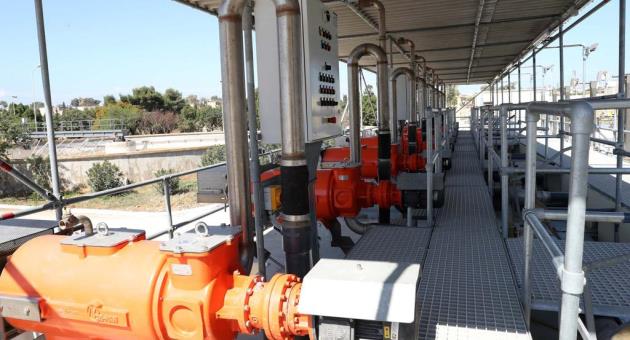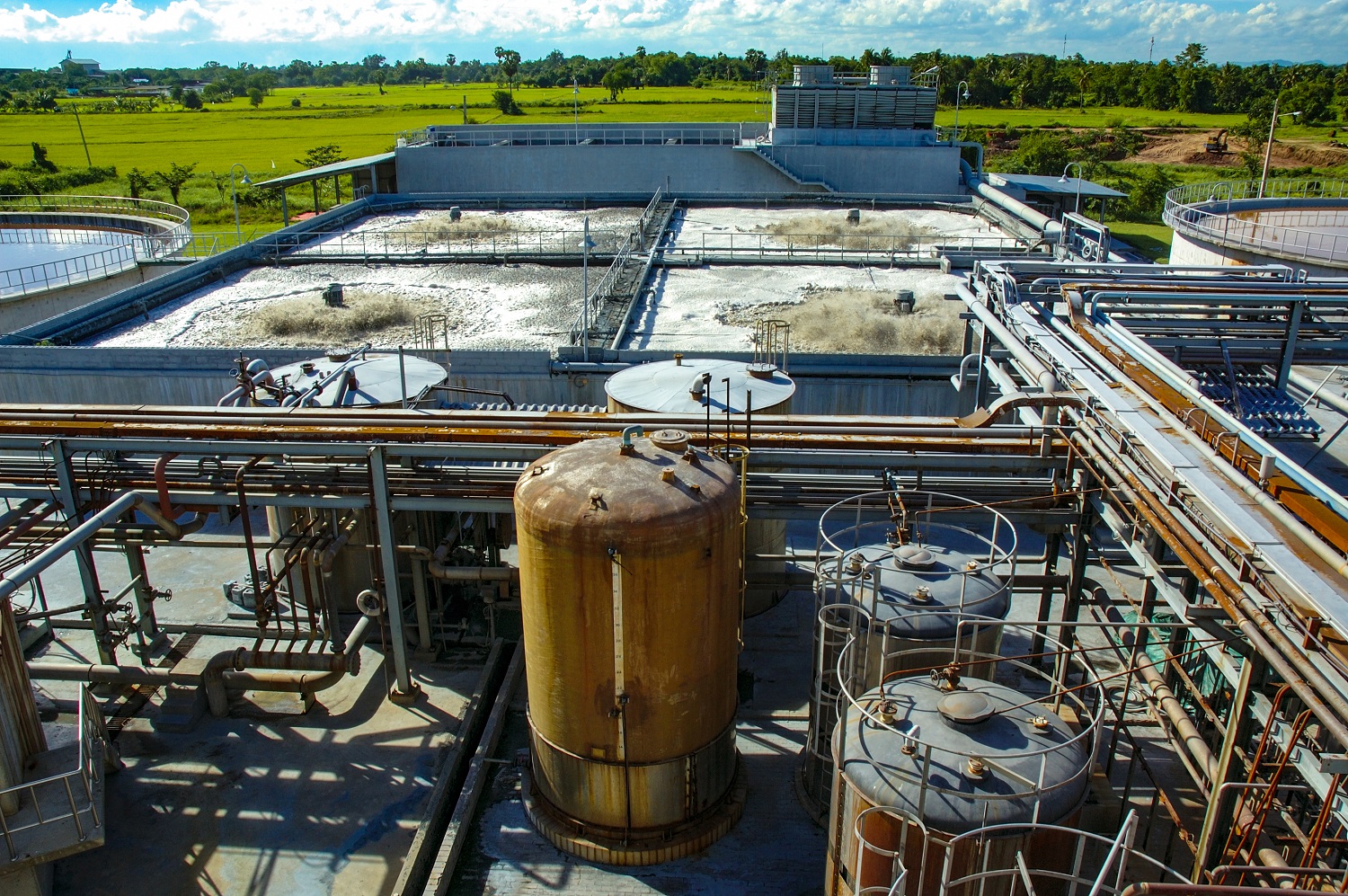The Benefits & Challenges of Reverse Osmosis
Knowing Malta
Discover how reverse osmosis technology is revolutionizing water purification in Malta. Learn about its benefits, challenges, and advancements in this informative article. Find out how this innovative solution is addressing the island's water scarcity issues and paving the way for a more sustainable future.
The Benefits and Potential of Reverse Osmosis in Malta
1. Water Scarcity in Malta
Located in the heart of the Mediterranean, Malta faces a unique set of challenges when it comes to water resources. With a high population density, limited natural freshwater sources, and a dependency on desalination and groundwater, the island nation struggles to meet its water demands. Over the years, water scarcity has become an increasing concern, calling for innovative solutions to ensure a sustainable water supply for the Maltese population.
2. Understanding Reverse Osmosis
Reverse osmosis (RO) is a water purification process that employs a semipermeable membrane to remove impurities from water. By applying pressure to the water, it is forced through the membrane, allowing only pure water molecules to pass through while contaminants are left behind. This technology has proven to be highly effective in removing salts, minerals, bacteria, and other pollutants, producing high-quality drinking water.
3. Reverse Osmosis in Malta
In Malta, reverse osmosis technology has gained significant traction in recent years. The Water Services Corporation (WSC), responsible for the production and distribution of water on the island, has made substantial investments in desalination plants utilizing RO. These plants treat seawater, providing a significant portion of the island's water supply. The adoption of reverse osmosis has not only improved the quality of drinking water but also reduced reliance on groundwater and increased water sustainability.
4. Benefits of Reverse Osmosis in Malta
a. Water Quality:
Reverse osmosis ensures that the water supplied to households in Malta meets high standards of quality, removing contaminants and improving taste.
b. Sustainable Solution:
By utilizing seawater and minimizing reliance on scarce groundwater resources, reverse osmosis contributes to a more sustainable water supply system.
c. Energy Efficiency:
Advanced reverse osmosis systems have become more energy-efficient, minimizing the environmental impact associated with desalination processes.
d. Reduced Water Stress:
Reverse osmosis helps alleviate pressure on limited freshwater resources, providing a reliable source of clean water even during periods of drought.
5. Challenges and Future Prospects
While reverse osmosis has proven to be a game-changer in Malta's water management, it is not without its challenges. The disposal of brine, a byproduct of desalination, requires careful consideration to prevent harm to marine ecosystems. Additionally, continued investment in research and development is crucial to enhance the efficiency and cost-effectiveness of reverse osmosis systems, making them more accessible to a wider population.
Looking ahead, there is great potential for reverse osmosis technology in Malta. The country can further explore the possibilities of decentralized RO systems, such as residential units or community-based plants, to address water scarcity in specific areas. Collaboration with international partners and knowledge sharing can also foster innovation and ensure the continuous improvement of reverse osmosis processes.
Reverse osmosis has emerged as a transformative technology in Malta's quest for sustainable water resources. By embracing the benefits of reverse osmosis, the nation has made significant strides in ensuring a clean and reliable water supply for its citizens. However, it is crucial to continue investing in research and development, address environmental concerns, and expand access to this technology. With a forward-looking approach, reverse osmosis has the potential to unlock a brighter and water-secure future for Malta.
The scarcity of freshwater resources is a global concern, and the island nation of Malta is no exception. Located in the Mediterranean Sea, Malta faces the challenge of meeting the increasing water demands of its population. However, the implementation of reverse osmosis technology has transformed the country's water supply landscape. In this article, we will explore the concept of reverse osmosis and its significance in Malta's context. We will delve into the benefits, challenges, and advancements associated with reverse osmosis in Malta, showcasing how this innovative technology is revolutionizing water purification on the island.
Understanding Reverse Osmosis
Reverse osmosis (RO) is a water purification process that involves the removal of contaminants by applying pressure to force water through a semipermeable membrane. This membrane allows the passage of water molecules while blocking impurities such as salts, minerals, and pollutants. RO technology is highly efficient and capable of producing clean, safe drinking water.
Water Challenges in Malta
Malta's water scarcity issue is primarily attributed to its geographical location, limited freshwater resources, and rapidly growing population. The country's reliance on desalination plants and groundwater extraction has posed several challenges, including high energy consumption, environmental impacts, and financial costs. To address these issues, Malta has turned to reverse osmosis technology as a sustainable solution. Individual households also purchase private reverse osmosis systems from trusted companies as can be seen on property-malta.biz/blog/20-leading-reverse-osmosis-companies-in-malta.
Advantages of Reverse Osmosis in Malta
Reverse osmosis has brought numerous advantages to Malta's water purification efforts. Firstly, it provides a reliable and consistent supply of clean drinking water. The RO process eliminates up to 99% of dissolved salts, heavy metals, and other contaminants, ensuring the water is safe for consumption.
Secondly, reverse osmosis allows Malta to reduce its dependency on costly and environmentally harmful desalination plants. By utilizing RO technology, the country can produce fresh water from abundant seawater resources, thereby mitigating the strain on limited freshwater supplies and reducing energy consumption.
Additionally, reverse osmosis plays a crucial role in preserving Malta's natural ecosystems. By minimizing the extraction of groundwater, which can lead to land subsidence and ecological damage, RO technology helps protect the island's delicate balance of nature.
Sustainable Water Treatment
Water treatment plays a vital role in safeguarding public health by removing contaminants and impurities from water sources. However, traditional water treatment methods often consume substantial amounts of energy, generate significant waste, and contribute to greenhouse gas emissions. To mitigate these negative environmental impacts, sustainable water treatment practices have gained traction.
Sustainable water treatment focuses on minimizing energy consumption, reducing the use of chemicals, optimizing water usage, and implementing efficient waste management strategies. By adopting sustainable approaches, we can achieve several key benefits:
a. Conservation of water resources:
Sustainable treatment methods prioritize water conservation through practices such as water reuse, rainwater harvesting, and efficient distribution systems. These measures help reduce the strain on freshwater sources and ensure their long-term availability.
b. Reduced carbon footprint:
Traditional treatment processes heavily rely on fossil fuels for energy, leading to substantial greenhouse gas emissions. Sustainable treatment technologies leverage renewable energy sources like solar, wind, and hydroelectric power, reducing the carbon footprint associated with water treatment.
c. Preservation of ecosystems:
By adopting sustainable practices, we can minimize the release of pollutants into rivers, lakes, and oceans, thereby protecting aquatic ecosystems and biodiversity. Sustainable water treatment also emphasizes the protection of critical habitats and the prevention of habitat destruction.
Sustainable Water Treatment Technologies
To achieve sustainable water treatment, several innovative technologies and approaches have been developed. These technologies focus on minimizing resource consumption, increasing efficiency, and improving water quality. Some notable sustainable water treatment technologies include:
a. Membrane filtration:
Membrane filtration processes, such as reverse osmosis and nanofiltration, use semi-permeable membranes to remove contaminants, particles, and microorganisms from water. These processes are energy-efficient and offer a high level of purification, making them essential for producing drinking water and treating industrial wastewater.
b. Constructed wetlands:
Constructed wetlands mimic natural wetland ecosystems and utilize plants, microorganisms, and natural processes to treat wastewater. They provide an environmentally friendly and cost-effective approach for removing pollutants through processes like sedimentation, filtration, and microbial degradation.
c. UV disinfection:
Ultraviolet (UV) disinfection is a chemical-free water treatment method that uses UV light to inactivate or destroy microorganisms. UV disinfection is an energy-efficient alternative to traditional disinfection methods and has proven effective in eliminating harmful bacteria, viruses, and protozoa.
d. Electrocoagulation:
Electrocoagulation is an electrochemical water treatment process that removes suspended solids, metals, and organic pollutants by inducing coagulation and flocculation. This technique offers several advantages, including low energy consumption, minimal chemical usage, and the ability to treat a wide range of contaminants.
e. Desalination:
Desalination technologies, such as reverse osmosis and electrodialysis, remove salt and other impurities from seawater or brackish water, making it suitable for various applications. While desalination requires significant energy inputs, integrating renewable energy sources can help mitigate environmental impacts.
f. Biological nutrient removal:
Biological nutrient removal (BNR) processes utilize bacteria and microorganisms to remove nutrients like nitrogen and phosphorus from wastewater. These processes help prevent nutrient pollution in receiving water bodies, which can lead to harmful algal blooms and oxygen depletion.
Integration of Renewable Energy Sources
One crucial aspect of sustainable water treatment is the integration of renewable energy sources to power treatment processes. By transitioning from fossil fuels to renewable energy, the water treatment sector can significantly reduce its environmental impact. Some key renewable energy options for sustainable water treatment include:
a. Solar energy:
Solar panels can be installed to harness the power of the sun and generate electricity for water treatment facilities. Solar energy is clean, abundant, and can be utilized to power various stages of the treatment process, including pumping, filtration, and disinfection.
b. Wind energy:
Wind turbines can be utilized to generate electricity for water treatment plants, particularly in areas with suitable wind resources. Wind energy is a cost-effective and renewable option that can help offset the energy requirements of water treatment processes.
c. Hydroelectric power:
Water treatment facilities located near rivers or other water bodies can harness the energy of flowing water to generate electricity. Hydroelectric power is a reliable and renewable energy source that can provide continuous energy supply for water treatment operations.
d. Biogas generation:
Anaerobic digestion of organic waste and sludge produced during the treatment process can produce biogas, a mixture of methane and carbon dioxide. Biogas can be used to generate heat and electricity, reducing the reliance on fossil fuels.
The Role of Public Awareness, Policies, and Collaborative Efforts 
In addition to technological advancements, raising public awareness, implementing supportive policies, and fostering collaboration are essential for promoting sustainable water treatment practices. Some key considerations include:
a. Education and outreach:
Public awareness campaigns, educational programs, and community engagement initiatives can help individuals understand the importance of sustainable water treatment and encourage water conservation practices.
b. Policy frameworks:
Governments and regulatory bodies play a crucial role in developing and implementing policies that promote sustainable water treatment. These policies can incentivize the adoption of green technologies, establish water quality standards, and encourage the use of renewable energy sources.
c. Public-private partnerships:
Collaboration between public entities, private companies, research institutions, and non-profit organizations is vital for driving innovation, sharing best practices, and implementing sustainable water treatment solutions on a larger scale.
d. International cooperation:
Water resources are not confined to national boundaries, and global collaboration is essential to address transboundary water issues and promote sustainable water management practices worldwide. Sharing knowledge, technologies, and resources can help countries overcome challenges and work towards a more sustainable future.
Sustainable water treatment is an indispensable component of achieving clean and secure water resources in the face of growing water scarcity and pollution. By embracing innovative technologies, integrating renewable energy sources, and promoting public awareness, we can transition towards more sustainable water treatment practices. This transition requires collaborative efforts from governments, policymakers, industry stakeholders, and individuals to ensure the long-term availability and quality of water resources for current and future generations. Embracing sustainable water treatment is not only a necessity but also an opportunity to create a healthier and more sustainable world for all.
Challenges and Solutions
Despite its advantages, reverse osmosis does present some challenges in the context of Malta. One such challenge is the management of brine discharge, the concentrated saltwater byproduct of the RO process. Proper disposal of brine is essential to prevent harm to marine life and maintain the ecological integrity of the surrounding waters. Malta is addressing this issue by implementing responsible brine management practices and exploring innovative solutions, such as brine dilution and controlled discharge.
Another challenge is the maintenance and monitoring of RO systems to ensure optimal performance. Malta has invested in comprehensive monitoring systems and regular maintenance protocols to maximize efficiency and extend the lifespan of its reverse osmosis infrastructure.
Advancements and Future Prospects
Malta continues to make advancements in reverse osmosis technology. Research and development efforts are focused on improving energy efficiency, optimizing membrane performance, and enhancing overall system reliability. These advancements aim to make RO technology more cost-effective and sustainable, further solidifying its position as a key water purification solution in Malta.
Moreover, the success of reverse osmosis in Malta has gained international recognition, inspiring other nations facing water scarcity to adopt similar approaches. The knowledge and expertise gained from Malta's experience can be shared and applied globally to address water challenges in diverse regions.
Reverse osmosis has revolutionized water purification in Malta, providing a sustainable and reliable solution to the country's water scarcity challenges. The technology offers numerous advantages, including the production of safe drinking water, reduction of reliance on desalination plants, and preservation of natural ecosystems. While some challenges exist, Malta is actively addressing them through responsible brine management and continuous system maintenance.
As Malta continues to advance its reverse osmosis infrastructure, it serves as a beacon of inspiration for other countries grappling with water scarcity. The success of RO technology in Malta highlights its potential as a transformative solution, not only for small island nations but for the global water crisis as a whole. Through further research, innovation, and collaboration, reverse osmosis can pave the way for a more sustainable and secure water future.
Here are 10 companies in Malta where you can buy Reverse Osmosis systems:
- Pure Aqua, Inc.: They provide advanced and low-cost water purification and reverse osmosis systems in Malta. All their systems are designed and built in the United States.
- Bridgepoint: A leading company that supplies a wide range of bathroom fittings and accessories, including 5-stage Reverse Osmosis systems.
- Msida: They offer Reverse Osmosis systems in Malta, with the government currently offering up to 40% cash back on purchases.
- DPI Reverse Osmosis Water Filters: They offer a large selection of RO water systems, ultrafiltration filters, and simple kitchen filters for domestic use.
- Attards Household Goods and Appliances: They have a large selection of household goods and appliances, including Reverse Osmosis systems from top brands.
- Ecosoft: This company develops and produces water filtration systems, including Reverse Osmosis systems, with a focus on premium quality at affordable prices.
- AL KAFAAH: They offer skid-mounted or containerized/mobile units for water treatment, including Reverse Osmosis systems, softeners, and arsenic removal plants.
- Bajada New Energy: They offer various water filters, including 6-stage Reverse Osmosis systems for high-quality water filtration.
- Nimbus Water Systems: They manufacture Reverse Osmosis and ultrafiltration water treatment equipment for a wide range of applications.
- Best whole-house reverse osmosis systems in Malta: They provide whole house Reverse Osmosis systems, which are an effective and efficient way to provide clean, pure water for homes or businesses.

